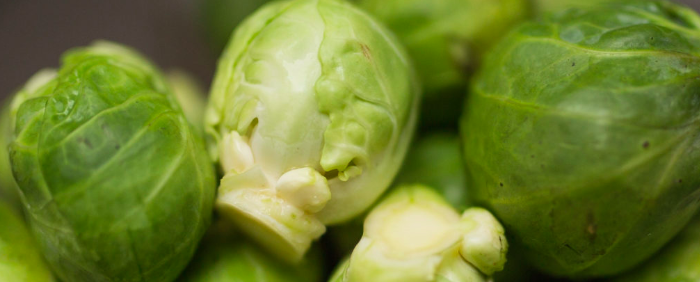
Brussels sprouts are a vegetable that has long been rejected because of their slightly bitter flavor. It is also often part of the bad memories of meals in the canteen in children. However, Brussels sprouts are simple to cook and rich in vitamins and minerals which provide many health benefits.
Characteristics of Brussels sprouts:
- Rich in vitamin C;
- Rich in antioxidants;
- Fight against the effects of aging;
- Protective effect on the cardiovascular system;
- Beneficial for people with diabetes.
What is Brussels sprouts?
Brussels sprout identity card
- Type: Vegetable;
- Family: Cruciferae;
- Origin: Europe;
- Season: September to March;
- Green color ;
- Flavor: Bitter to sweet.
Characteristics of Brussels sprouts:
Brussels sprouts grow on stems up to a meter in height. Each stem can give between 25 and 70 buds. Brussels sprouts are harvested when they are between 2 and 4 centimeters in diameter.
Word from the nutritionist
Brussels sprouts are low in calories and high in fiber. It is a food of choice during periods of weight loss. One serving corresponds to 150 to 200g of Brussels sprouts.
Nutritional values
Per 100g of cooked Brussels sprouts:
| Nutrients | Quantities |
| Protein | 2.6g |
| Fat | 0.5 g |
| Carbohydrates | 2.8g |
| Water | 87.6g |
| Fibers | 4.6g |
| Vitamin C | 60 mg |
| Vitamin B6 | 0.14 mg |
| Vitamin B9 | 87 µg |
| Calcium | 27 mg |
| Potassium | 298 mg |
| Magnesium | 18 mg |
6 benefits of Brussels sprouts: why eat them?
- The calcium in Brussels sprouts will be beneficial for your heart as it helps regulate the heart rate. It will also help you maintain good dental and bone health.
- Primordial in the transmission of nerve impulses, the potassium contained in Brussels sprouts will also be useful in the contraction of all the muscles in your body.
- In general, beta-carotenes will contribute to good cell growth. Their role is also to ensure good health of the retina and to preserve your eyesight.
- It is for blood clotting that vitamin K will be essential, it will also be important for preventing cardiovascular diseases.
- To slow cell aging but also stimulate your immune defenses, the vitamin C contained in Brussels sprouts will play an essential role.
- The richness in folates (or vitamin B9) of Brussels sprouts makes it a key food to introduce into your diet if you are pregnant or if you want to be since this vitamin participates in the synthesis of DNA.
Choose the right Brussels sprout
It can be bought fresh, canned or frozen. It is a winter vegetable, so you will find it fresh between October and February.
A beautiful Brussels sprout should be green and firm, the white base and the leaves should not be withered.
The flavors will be sweeter and less bitter if you opt for young and small Brussels sprouts.
The different varieties
The various varieties of Brussels sprouts correspond to different harvest times. We then differentiate between early varieties and semi-late and late varieties.
Keep well
You can keep them in the vegetable drawer of the refrigerator for 3 to 4 days if you buy them fresh.
Preparation of Brussels sprouts
How to cook it? How to match it?
It can be cooked in water (count around twenty minutes), gratin or sauteed in a pan. If you want to speed up the cooking of Brussels sprouts in water, you can make a cross-shaped incision at the base of each cabbage.
To avoid fermentation leading to flatulence, remember to blanch your Brussels sprouts before cooking them.
Brussels sprouts are found as an accompaniment to many dishes, they can also be eaten in a pot by garnishing them with bacon and onions. You can use Brussels sprouts for mashed potatoes, soups or even savory pies.
History of food
Brussels sprouts get their name from the Belgian capital because Brussels sprouts were grown in the Saint-Gilles district. The cultivation of this cabbage being profitable since it grows vertically and takes up little space, it quickly spread in surrounding countries and abroad.
Brussels sprouts have long been absent from large restaurant tables, the creation of new varieties of Brussels sprouts, sweeter and less bitter, has made it possible to reintroduce it into recipes from great chefs.